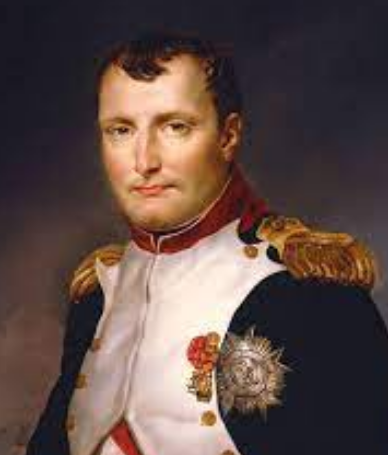Napoleon Bonaparte, a towering figure in European history, emerged from humble beginnings to reshape the political landscape of his era. Born on August 15, 1769, on the island of Corsica, Napoleon displayed early signs of brilliance that would eventually catapult him to the zenith of power. His meteoric rise, military prowess, and ambitious vision left an indelible mark on the world, earning him a place among history’s most influential figures.
Early Life
Napoleon Bonaparte was born into a family of minor nobility in Ajaccio, Corsica. His Corsican roots, coupled with the tumultuous political climate of the time, shaped his character and instilled in him a desire for greatness. At the age of nine, he was sent to mainland France for his education, marking the beginning of a journey that would see him transform from a provincial Corsican boy to a legendary military strategist and statesman.
Military Career
Napoleon’s military career began at the age of 16 when he entered the French Army as a second lieutenant. His tactical acumen quickly garnered attention, and he rose through the ranks during the tumultuous years of the French Revolution. In 1799, following the coup of 18 Brumaire, Napoleon seized power and became the First Consul of France, effectively marking the end of the revolutionary era.
The Napoleonic Wars
The ensuing years saw Napoleon embroiled in a series of conflicts known as the Napoleonic Wars. His military genius and strategic brilliance became evident as he conquered vast territories, including Italy, Austria, and Prussia. The crowning achievement came in 1804 when he declared himself Emperor of the French, cementing his status as a formidable force in European politics.
Code Napoleon
Beyond the battlefield, Napoleon’s influence extended to the legal realm. He implemented the Napoleonic Code, a comprehensive legal system that remains the foundation of modern civil law in many countries. This code prioritized individual rights, equality before the law, and the protection of property – principles that endure to this day.
Downfall and Exile
Napoleon’s ambitious expansion, however, led to his eventual downfall. The disastrous invasion of Russia in 1812 marked a turning point, and the ensuing Sixth Coalition ultimately defeated him at the Battle of Leipzig in 1813. Exiled to the island of Elba, he briefly returned to power in 1815 during the Hundred Days but suffered a final defeat at the Battle of Waterloo.
St. Helena and Legacy
Exiled once again, this time to the remote island of St. Helena, Napoleon spent his final years reflecting on his tumultuous life and legacy. He died on May 5, 1821, leaving behind a complex and enduring legacy. Napoleon Bonaparte remains a controversial figure – a military genius, a visionary leader, and a symbol of both triumph and tragedy.
Conclusion
Napoleon Bonaparte’s life is a testament to the indomitable spirit that can propel an individual from humble beginnings to the pinnacle of power. His impact on military strategy, governance, and legal systems continues to reverberate through the corridors of history, ensuring his place as a central figure in the tapestry of human achievement and ambition.
